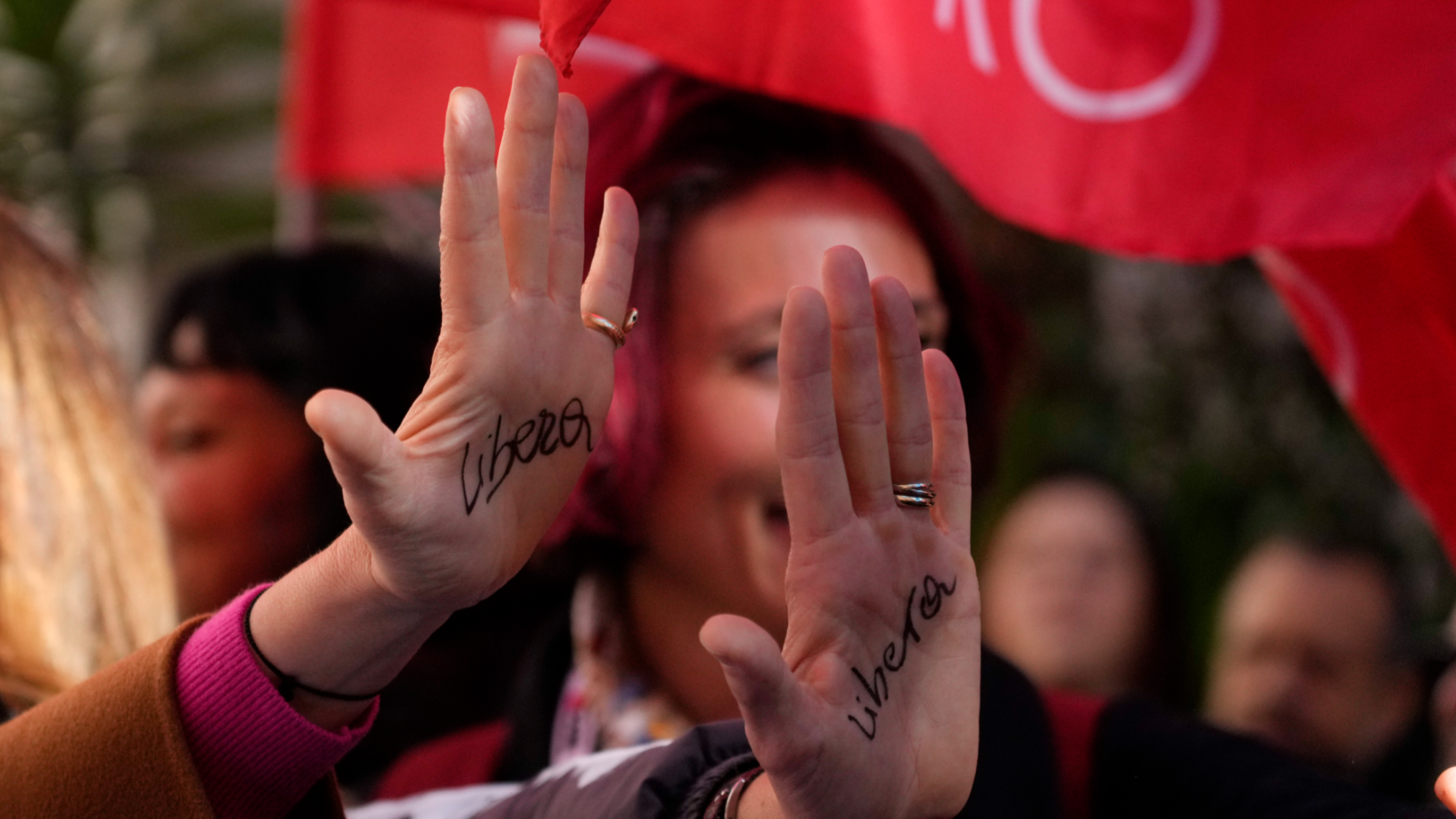
ROME/NAPLES — With Giorgia Meloni, Italy has probably the most openly anti-abortion prime minister in western Europe, but terminating pregnancies in the majority-Catholic country that hosts the Vatican has never been easy.
When Linda Feki, a 33-year-old singer and musician from Naples, posted her account of stigma and abuse in undergoing the procedure, she received heartfelt messages of support from many Italian women who identified with her experience.
She also received criticism and insults, reflecting intensifying national divisions over reproductive rights under Meloni's leadership.
READ MORE: Brazil women march against bill tightening abortion ban
"I decided to make my story public ... because I have a public profile so maybe my voice could resonate more. I felt a kind of responsibility as a citizen, but also as an artist, to convey the message that abortion is a right", she told Reuters.
Abortions in Italy are legal within the first three months, and beyond that when the mother's mental or physical health is seriously endangered. But bureaucratic, cultural and practical obstacles all get in the way.
About 63 percent of gynaecologists across Italy are among medical staff officially known as "conscientious objectors", refusing involvement in abortions on ethical grounds, health ministry data shows. The figure rises to more than 80 percent in parts of the south.
Feki said she first went to Naples' San Paolo hospital, where a gynaecologist questioned whether she really wanted to abort and insisted her pregnancy was at a later stage than would have been possible given when she had last seen her long-distance partner.
When challenged, the doctor implied she may have slept with others, Feki said, adding that a subsequent scan from a private gynaecologist confirmed the pregnancy was at an earlier stage.
Doctor Luigi Terracciano, head of Gynaecology and Obstetrics at the San Paolo, said he was sorry to hear that Feki had a bad experience. "It is my desire and interest to meet her and clarify the situation, if she wishes it too," he told Reuters.
Be more careful next time
Feki then turned to the Cardarelli hospital, where she said pre-surgery medicine caused her intense pain, but nobody offered painkillers, and that after the surgery a "conscientious objector" nurse initially refused to respond to a call for help.
She had the procedure on March 4, the day neighboring France made abortion a constitutional right.
On Instagram, she wrote she found it "heartbreaking" to be reprimanded about her pregnancy by the surgeon and nurses "immediately after surgery".
"There should be no judgement on a choice that is our right," she told Reuters.
A spokesman for the Cardarelli said it welcomed the feedback from Feki, adding that there were possible margins for improvement in patient care services. It said it was in contact with the artist to discuss the matter, which Feki confirmed.
Cultural battles
Meloni, 47, is Italy's first female prime minister, leading a conservative government since 2022. In her best-selling autobiography, "I am Giorgia", she said she was born after a late decision by her single mother not to abort.
Despite being personally opposed to abortion, she vowed not to change or abolish the 1978 law that legalized it, insisting instead on what she calls a fuller implementation of the law, noting that it also deals with prevention.
Her ruling coalition has passed legislation allowing groups who "support motherhood" into abortion advice clinics, and recently proposed a "motherhood income" of 1,000 euros ($1,084) per month, for five years, for low-income pregnant women who show up at these clinics.
Hosting G7 leaders in June, Meloni insisted on the removal of references to the importance of "safe and legal abortion" from the final statement. One of her ministers said she wanted to avoid offending summit guest Pope Francis, who has described abortion as "murder".
Anti-abortion groups are a vocal lobby in Italy, with strong connections to several lawmakers in the ruling coalition.
Jacopo Coghe, a spokeperson for one of the groups organising the annual "We Choose Life" rally in Rome - ProVita & Famiglia - said divisions in society had intensified.
"The climate has changed, our activists, especially young people, are more determined, but on the other hand the incidents of intolerance against us have increased, with 10 acts of vandalism against our premises in the last 4-5 years."
He said he did not expect Meloni to change the abortion law, but that the goal was to shift public opinion against it to pave the way for its repeal at some point.
In the meantime, he said he hopes the government will do more to prevent abortions, especially in terms of helping women afraid of not being able to afford to raise a child.
READ MORE: French lawmakers set to make abortion a constitutional right
Defenders of abortion rights say there is nothing wrong with offering money to pregnant women, especially if in need, but they should not be exposed to stigma or psychological pressure.
Francesca Pierazzuoli, a psychologist who oversees abortion advice clinics in the greater Milan area, said their work has "nothing to do" with persuasion and anti-abortion groups had not yet entered the clinics she oversees.
Elisabetta Canitano, a gynaecologist and veteran abortion rights campaigner from Rome, said those who try to convince a woman to keep a child she does not want, have "no idea of the hell they are pushing her into, no idea at all".


